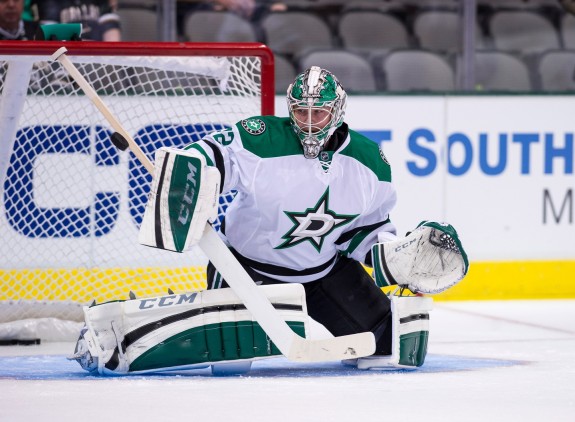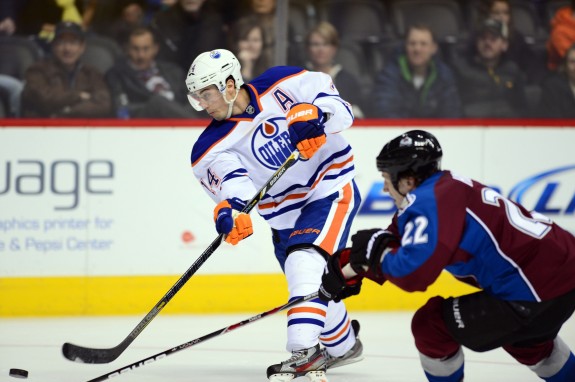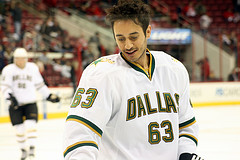The preseason is a time for teams to come back together and prepare for competitive hockey. The players are rusty. Some are still getting acclimated to new surroundings and new teammates. Some are returning from injuries. Fringe guys are battling for roster spots, while prospects hope to make a claim to stick with the big clubs. New coaches are busy converting teams to different systems.
“It felt like the first day of high school or something. You don’t really know anybody” – New Flyer Vincent Lecavalier, to CSN Philly
Fans want to cheer their teams to victory, but management is more concerned with evaluating prospects and shaping the roster than putting another mark in the win column. It’s a time for tune-ups and tweaks, not a time for peak performance. But is the preseason any indicator of regular season or playoff success?

Win Percentage
In a 30-team league with a 16-team playoff, you’re starting off with a 53% percent change of making the postseason. (With realignment, it’s now a bit unbalanced – 57% in the West and 50% in the East). How teams perform in the preseason does seem to move that number a bit.
Since the lockout, teams with winning records in the preseason have made the playoffs 59% of the time, while those with losing records qualify in just 43% of opportunities.
Collectively, over those seven seasons, non-playoff teams have posted a preseason record of 46-36-16 (55% winning percentage). Playoff clubs have performed better, going 67-28-17 (67%) before the start of the season.
Obviously, better teams will win more games in preseason and in the regular season. There’s also likely to be stability in clubs that win, with more returning players and coaches. Less player turnover means that guys are already familiar with each other’s style of play coming into camp. There’s less to learn and more fine tuning of an already-established system.
Playoff Performance
Teams that win in the preseason have a slightly better shot of making the playoffs, but how do they do when they get there?
Interestingly, only seven of the 14 Stanley Cup finalists from 2005-2012 posted winning records in the preseason. None of the previous three champions – the 2012 Kings, 2011 Bruins, or 2010 Blackhawks – were over .500.
A strong preseason record may indicate better chance of making the playoffs, but little on how a team will do when it gets there. The 2012 Kings most recently proved that even regular season performance has no bearing on the playoffs. As long as you make it to the postseason, anything can happen.

Scoring Leaders
How about the players? Does coming out of the gate on fire to start the preseason translate into a great regular season? Not necessarily. Statistically speaking, there are so few games and such inconsistencies in the lineups – both a player’s team and his opposition – that it doesn’t necessarily translate. It’s simply too small of a sample size.
The leading scorers in the preseason have averaged over two points per game since the lockout. In comparison, the NHL’s regular season leading scorers have averaged 1.40 points per game from 2005-2013. The last time anyone averaged more than two points a game over a full season was Mario Lemieux’s 161 points in 70 games in 1995-96 (2.30 points per game.

Preseason scoring in 2011 was paced by Mike Ribeiro’s impressive ten points in four games. Obviously, 2.50 points per game was a pace he’d never maintain. He went on to have a decent season, scoring 18 goals and 45 assists – good enough for third on the Stars in scoring. If you’re keeping score at home, that’s 0.85 points per game.
Defenseman Fedor Tyutin’s seven preseason points had him tied with stars Evgeni Malkin and Claude Giroux. The latter two would finish first and third, respectively, in league scoring. Tyutin’s regular season performance dropped off quite a bit as he netted only 26 points on the year, good enough for 269th in the league.
It’s happened in the past, too, where a player tears up the preseason only to disappear or at least take a step back in the regular season
- 2010 – Atop the scoring list were talented players like Phil Kessel, Ryan Getzlaf, and Zach Parise. Also among the top 10 preseason scorers: Chris Campoli. The Isles defenseman, coming off a four-goal season, potted two in five preseason matches. He managed just six in the regular season.

Mike Comrie was on fire in the 2009 preseason (GOSHA IMAGES / Flickr) - 2009 – Just signed to a one-year deal with his hometown team, Mike Comrie led the league with 10 points in 5 preseason games. That run included a four-assist night against the Panthers. He cooled down considerably after that, with a mononucleosis-interrupted 43-game, 21-point regular season campaign.
- 2008 – The Blues managed to have three of the top four preseason scorers that year. Andy McDonald (2.6 PPG), Lee Stempniak (2.4 PPG), and Brad Boyes (2.0PPG) all played well above their heads. Of course, most of that offence came in a 9-4 victory over Atlanta. Boyes led the Blues in scoring, McDonald missed half the season with a broken leg, and Stempniak finished the year in Toronto.
- 2007 – One man was head and shoulders above the rest of the league in preseason scoring. Derek Roy’s 13 points in 5 games (2.6 PPG) were well above his career average of 0.77. Of course, the second best player was the Stars’ Chris Conner with three goals and six assists in five games. If that name doesn’t ring a bell, don’t be surprised. He’s bounced around since, with stops in Detroit, Phoenix, and Pittsburgh – where he posted a career-best 16-point season, a far cry from once being second in the league in preseason scoring.
What Preseason Means for Your Team
Don’t put too much stock into how things have gone. The talent pool is broader, as new players try to make their mark. Familiarity is lower, as traded and signed players get acclimated. The level of competition is down because the stakes aren’t as high for everyone on the ice.
“Even in the best of times, hockey’s exhibition warmups feature half-power rosters playing half-intensity games in half-empty arenas, with full-scale risk of injury.” – Jesse Spector, The Sporting News
The sky is not falling if your team is terrible. Five teams have had one-win preseasons (Bruins, Panthers, Rangers, and the Penguins, twice) and still made the playoffs. The 2007-08 Pens made it all the way to the Cup Final despite going 1-3-2. That’s particularly good news for fans of the Rangers, Flyers, and Islanders.
On the flip side, don’t get too confident. (I’m looking at you, Stars, Lightning, and Oilers fans.) The Flames (a perfect 7-0 in 2010), Blackhawks (7-1 in 2006), and Stars (6-1 in 2011), all peaked in the preseason and missed the playoffs entirely. Those Flames, by the way, went on to lose their opening game of the regular season. They didn’t hit seven wins until November 9.
Take a deep breath and let it all out. It all means nothing. Like Alain Vigneault’s team slogan in New York, it’s a ‘clean slate’ for everyone once the regular season begins.
The goals and assists don’t count.
The wins and losses don’t count.
No, the only thing that counts in the preseason are the suspensions. Just ask David Clarkson and Zack Kassian…